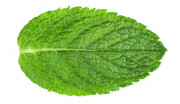1. Your cat or dog should like the vitamins, either as a treat or as an addition to the food.
If you need to chase your pet around to get him to take his daily supplement, both you and your pet will quickly tire of it.
2. The milligrams (mg.) and International units (IU)of each vitamin should be listed on the ingredients
This tells you exactly what’s in the vitamin and you can compare apples with apples.
3. The vitamins must be complete.
If a few inexpensive components are placed in a flavored mix, your pet is getting flavor and not a complete formula. Vitamins and minerals provide the body with the correct tools to stay healthy. If you had no hammer and no nails but you had a saw and wood you could not build or maintain a house. It’s the same with vitamins- the body needs specific tools and vitamins should provide all of them.
4. The vitamins must be correctly balanced.
Vitamins work together and if they are not balanced with all the ingredients needed to get the job done, the job simply doesn’t get done.
5. The sources should be bioavailable.
This means your dog or cat should be able to absorb and utilize the vitamins and minerals in the mix. Powdered bone meal or oyster shells are often used as a calcium source yet neither is able to be absorbed or utilized. Unfortunately, bone meal has toxic cadmium and lead in it and these toxic metals are absorbed into your pet’s body.
6. The flavorings and formula should be designed with respect to the high incidence of allergies in pets.
Brewers Yeast an inexpensive by-product from brewing beer is often used as a flavoring. It is a dilute source of inexpensive but incomplete B vitamins and it is one of the top foods dogs are allergic to.
7. New research on vitamins is always coming out in the press and the vitamins should incorporate this research into their formulation.
For example, Vitamin D3 has been found to be deficient in people, cats and dogs and is important in many biological processes.
8. The vitamin should be designed with the biochemical needs of the species in mind.
Cats cannot synthesize taurine in their bodies, so they need this amino acid included in their vitamins. Cats only get active Vitamin D3 from raw liver or supplements so they need a healthy dose.
9. A vitamin that helped decrease the toxic load of today’s environment would further promote your pet’s health.
Most pet vitamins do not include Vitamin C as both dogs and cats can create Vitamin C in their body, but Vitamin C acts to flush systemic toxins out and boost the immune system. Our pets are exposed to flea and tick preventives, lawn chemicals and many noxious substances. Extra vitamin C only helps to keep their internal systems clean and free of toxins and chemicals and in doing so, promotes health.
10. The quality and the sources of the ingredients, human grade being the best, must be considered.
Ingredients from poor sources have poor efficacy.
Dr. Deva Khalsa, VMD

 About Dr. Khalsa
About Dr. Khalsa